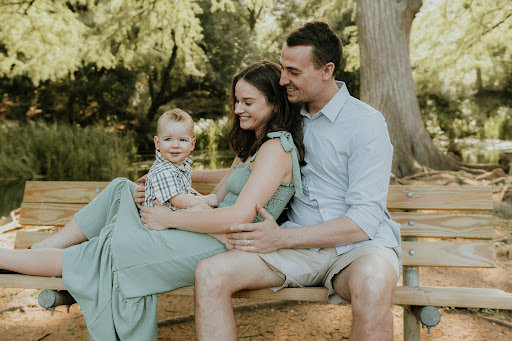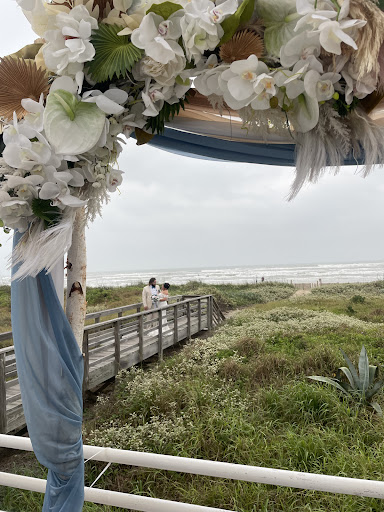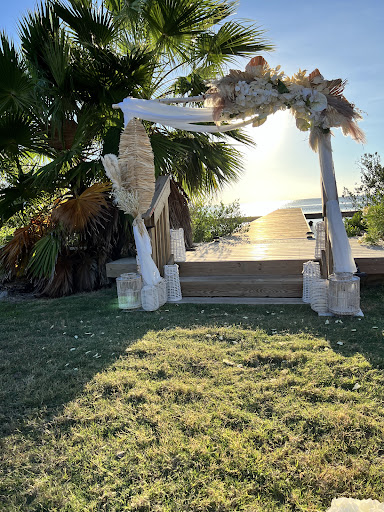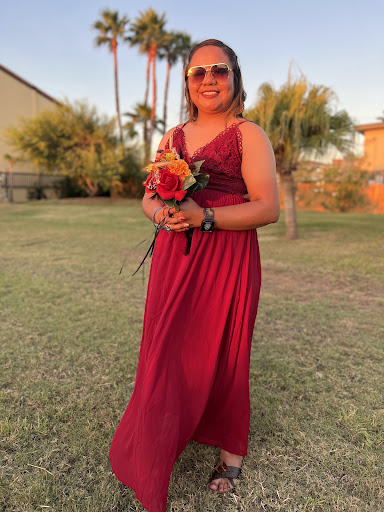Ultimate How-to Checklist For Stress-Free Wedding Planning
By Weddings By Wendi – Your Texas Hill Country wedding planner
A checklist can be your best friend while navigating the exciting yet often overwhelming journey of wedding planning. With so many details to consider, staying organized is vital for creating a smooth and enjoyable experience. In this ultimate how-to checklist, you’ll find a step-by-step guide that empowers you to keep track of everything from budgeting to final touches, ensuring that your big day is as stress-free as possible. Let’s dive in and transform your wedding planning into a seamless adventure!
How to Start Your Wedding Planning
Your wedding planning journey begins with clear organization and a solid foundation. Start by setting a timeline and gathering necessary resources. Discuss your ideas with your partner and enlist the help of friends or family members to make the process smoother. Establish priorities early on, as this will guide every decision you make throughout the planning phase.
Defining Your Vision
Howto define your wedding vision by considering themes, styles, and the atmosphere you want to create. Explore inspiration from various sources like wedding magazines, blogs, and Pinterest boards. Discuss your hopes and preferences with your partner to ensure your day reflects both of your personalities.
Setting a Realistic Budget
Start by outlining your budget to determine how much you can realistically spend. Consider factors such as venue, catering, and attire, while also accounting for potential hidden costs. This financial framework will help you prioritize your spending and make necessary adjustments as you refine your plans.
The success of your wedding planning largely hinges on setting a realistic budget. Begin by researching average costs in your area for various wedding elements such as venues, catering, and decor. Create a dedicated budget spreadsheet to track expenses and compare quotes. Allow a buffer for unexpected costs, and don’t hesitate to adjust your expectations based on your financial limits. This proactive approach will provide you with peace of mind and a clear path toward your dreamy celebration.
How-to Choose the Perfect Venue
Assuming you’ve set a budget and a date, selecting the right venue is a significant step in your wedding planning journey. Your venue will set the tone for your entire celebration, impacting everything from the atmosphere to guest experience. Consider factors such as location, guest capacity, aesthetic style, and available services to ensure it aligns with your vision for the day.
Key Factors to Consider
Assuming you are weighing your options, there are several key factors to consider when choosing a venue. Each element plays its part in crafting your ideal setting:
- Location accessibility for guests
- Size and layout of the space
- Aesthetic and ambiance
- Indoor versus outdoor options
- Available packages and services
After evaluating these factors, you’ll narrow down your options to venues that meet your expectations and needs.
Timing and Availability
Even as you identify potential venues, timing and availability can greatly influence your choices. Popular wedding venues often book up well in advance, especially during peak seasons. Be proactive and start your search early to secure your top pick.
Perfect timing when planning your wedding is about knowing the nuances of peak seasons and local events that may affect venue availability. Popular wedding dates and weekends tend to fill quickly, so look into having your wedding during off-peak times for broader choices. Checking availability early enables you to lock in the venue you desire, and it reduces the stress of last-minute decisions. Don’t hesitate to visit multiple venues to find the right fit, while keeping track of their calendars to plan accordingly.
How-to Create Your Guest List
It’s important to start your wedding planning by creating a comprehensive guest list. Begin by compiling a list of everyone you wish to invite, considering the size of your venue and your budget. Think about close family, friends, colleagues, and anyone significant in your life. Once you have an initial list, categorize your guests into groups to help with seating arrangements and invitations later. This will ensure that you can manage the guest list effectively and cater to everyone’s needs on your special day.
Tips for Invitations
Howto ensure your invitations are thoughtful and organized. Start by choosing a design that reflects your wedding theme and includes vital details:
- Full names of the couple
- Date, time, and location of the wedding
- RSVP deadline and contact method
- Accommodation information, if applicable
The help you provide through clear invitations will set the tone for your event and keep guests informed.
Managing Responses
Any guest list can be overwhelming without a solid system for managing responses. Create a spreadsheet or a dedicated app to track RSVPs, noting who has confirmed, declined, or is yet to respond. This way, you can easily follow up on any missing responses, ensuring you have an accurate headcount for your wedding day. Having this organized method allows you to plan seating arrangements and logistics without unnecessary stress.
For instance, you can include a column in your spreadsheet for meal preferences or any specific needs your guests may have. This information is not only helpful for catering but also shows your guests that you value their comfort. Additionally, consider sending a reminder to those who have not responded as the RSVP deadline approaches. Being proactive can make the final stages of your planning smoother, leaving you free to enjoy the lead-up to your wedding.
How-to Select Vendors
All weddings require a team of talented vendors to bring your vision to life. Selecting the right vendors can significantly impact your wedding experience, so it’s necessary to approach this step with care. From photographers to florists, choosing professionals who align with your style and budget is fundamental. Start by understanding your needs and exploring all available options before making commitments.
Researching Options
Researching potential vendors is an important first step in the selection process. Begin by gathering recommendations from friends, family, and online resources. Create a list of possible options and check their reviews and portfolios. Comparing styles, pricing, and availability will help you narrow down your choices. Utilize social media and wedding planning sites to gain insights into their work and client experiences.
Interviewing and Booking
Clearly communicate your vision when interviewing vendors. Schedule meetings to discuss your specific needs and expectations. This is an opportunity to assess their expertise and professionalism. Be sure to ask about their experience with weddings similar to yours and how they handle challenges. After you’ve chosen your preferred vendors, promptly secure your booking with a contract to ensure their availability on your big day.
Options vary widely among vendors, so it’s beneficial to ask about their packages and flexibility in tailoring services to suit your needs. Be transparent about your budget and what you’re looking for in terms of style and atmosphere. Establish a rapport during the interview process; feeling comfortable with your vendor can lead to better collaboration. Once you’ve made your decision, handle the paperwork carefully and retain a copy of your agreement to avoid misunderstandings later on.
How-to Plan the Wedding Day Timeline
Once again, crafting a detailed timeline for your wedding day is crucial to ensure everything runs smoothly. Start by outlining the key events, such as hair and makeup, the ceremony, reception, and any special moments like toasts or dances. Allocating specific time slots for each activity will help your day flow seamlessly, allowing you and your guests to enjoy every moment without unnecessary stress.
Essential Elements to Include
Even the best-laid plans can fall short without including key elements in your wedding day timeline. Make sure to factor in time for vendor arrivals, ceremony start times, and any buffer periods needed for unexpected delays. Include details like transportation schedules and your personal preparation time to create a realistic and comprehensive timeline.
Coordinating with the Venue and Vendors
With a solid timeline in hand, you’ll want to coordinate closely with your venue and vendors. Communication is key for ensuring everyone is on the same page regarding the schedule and logistics of the day.
Essential to a successful wedding day is maintaining an open line of communication with your venue and vendors. Share your timeline well in advance, and confirm their arrival times and responsibilities. This coordination keeps everyone informed, enabling effortless transitions and a harmonious experience on the big day. Regular check-ins as your wedding date approaches will also help to preemptively address any potential issues, ensuring you can fully enjoy your celebration without last-minute surprises.
How to Manage Wedding Day Stress
After months of planning, the wedding day can feel overwhelming. To ensure everything unfolds smoothly, it’s important to take proactive steps to manage stress. Start with a calm mindset, embrace the day, and let your loved ones support you during this special moment. Focus on enjoying the celebration instead of worrying about every detail.
Tips for Staying Calm
Even during the excitement of your wedding, it’s important to find moments of calm. Here are some effective techniques to help you stay centered:
- Practice deep breathing exercises.
- Take short breaks to regroup.
- Visualize a successful day.
- Engage in gentle stretching or yoga.
Perceiving your wedding day as a joyous occasion rather than a stressful event can make all the difference.
Delegating Responsibilities
Manage your stress by delegating responsibilities to trusted friends and family members. You don’t have to shoulder all the planning and execution alone; sharing tasks can lighten your load and free you to enjoy your special day.
This approach allows you to focus on the bigger picture and enjoy meaningful moments. Assign roles to reliable individuals, such as a friend for coordinating vendors, a family member for handling guest inquiries, and another for managing the timeline. When you trust others, it reduces the pressure on you. As a result, your wedding day can transform into a more enjoyable experience, ensuring that your energy is focused where it counts most.
Final Thoughts: Your Checklist for Stress-Free Wedding Planning
Considering all points, your journey towards a stress-free wedding can be simplified by adhering to this ultimate how-to checklist. By organizing each detail, from venue selection to guest management, you allow yourself the freedom to enjoy the moments leading up to your big day. Utilize this checklist as your guide, ensuring that every element is addressed, paving the way for a memorable celebration that reflects your unique vision. With proactive planning, you can embrace your wedding experience with confidence and joy.








































